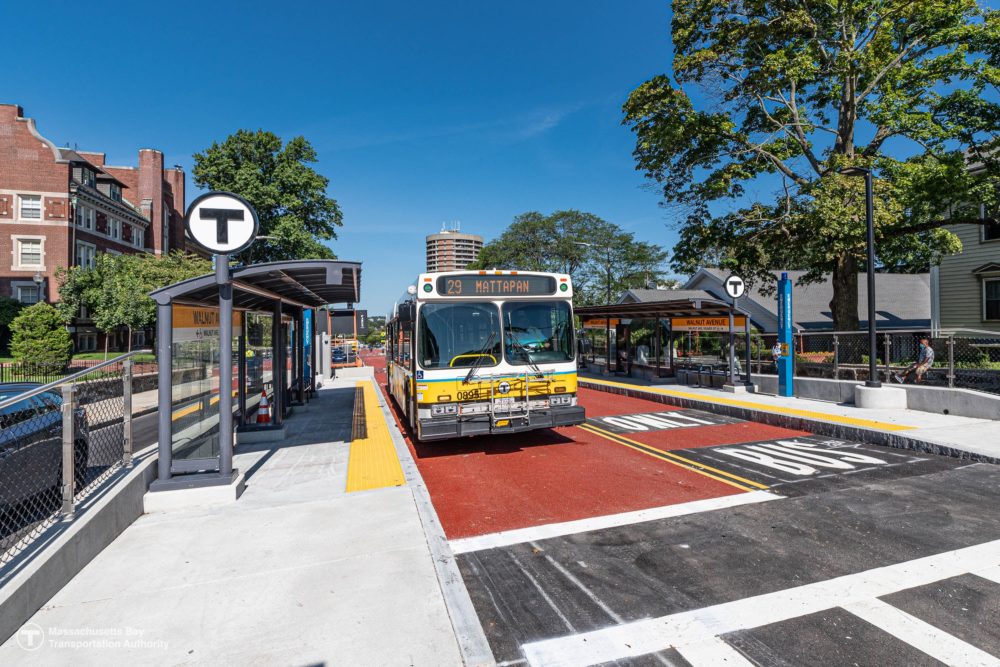
The center-running Columbus Avenue bus lanes in Boston, a joint project of the Boston Transportation Department and MBTA
TransitCenter’s annual Frequency Awards recognize outstanding work in the transit field.
In 2021, everyone working in transit faced the daunting challenge of restoring service while the risk of COVID never fully subsided. The people, organizations, and agencies we recognize with this year’s Frequencies rose to the occasion, working to improve transit today while giving transit riders cause to feel optimistic about the future.
Here are the 2021 honorees:
Boldest Leader
The 2021 Frequency for Bold Leadership goes to Denver RTD General Manager and CEO Debra Johnson.
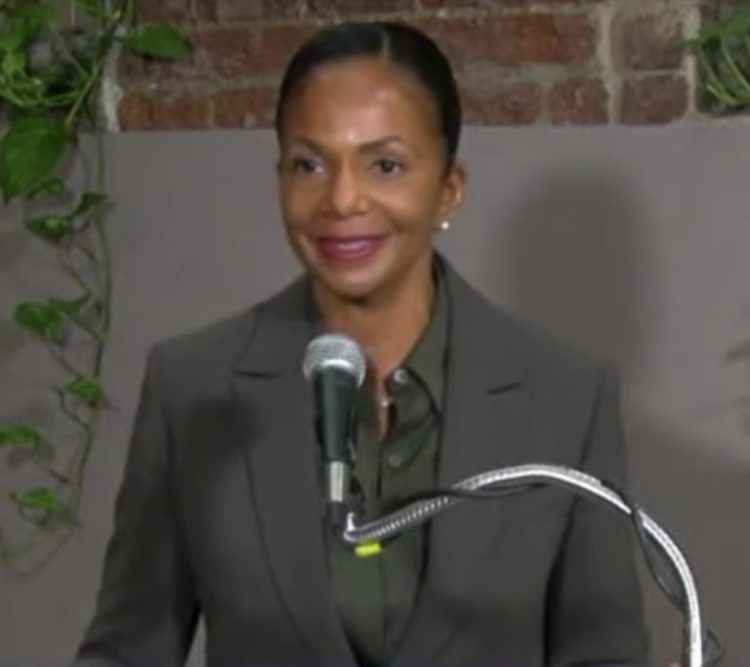 Johnson has refocused RTD around the mission of providing great transit service. During the pandemic, RTD has been a leader in prioritizing service where ridership remains highest. Johnson has also been direct and forthright about the need for RTD to allocate capital dollars wisely and avoid expensive projects that cannibalize funds for service, even when that stance put her at odds with the governor. By staking out a position that’s best for RTD’s long-term health, Johnson stood up for the interests of transit riders and provoked a much-needed discussion of how RTD should spend resources.
Johnson has refocused RTD around the mission of providing great transit service. During the pandemic, RTD has been a leader in prioritizing service where ridership remains highest. Johnson has also been direct and forthright about the need for RTD to allocate capital dollars wisely and avoid expensive projects that cannibalize funds for service, even when that stance put her at odds with the governor. By staking out a position that’s best for RTD’s long-term health, Johnson stood up for the interests of transit riders and provoked a much-needed discussion of how RTD should spend resources.
Best Transit Expansion
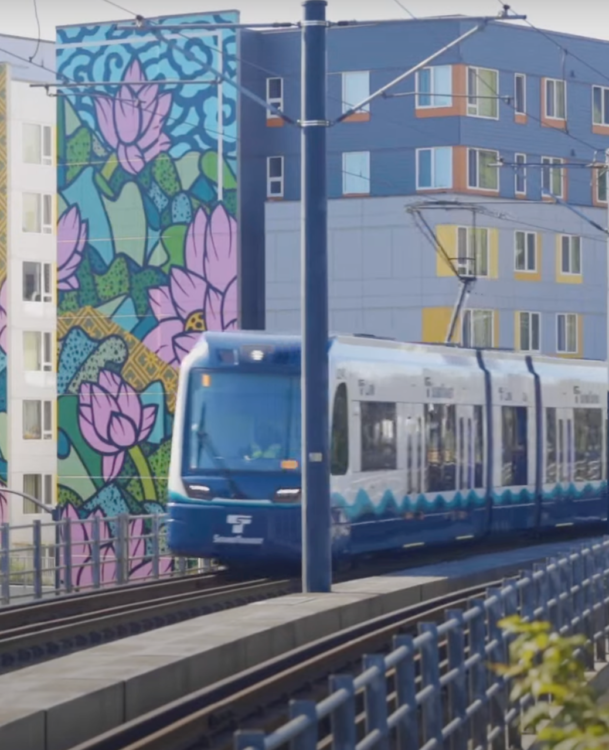 The Northgate Link extension in Seattle was a team effort between Sound Transit, King County Metro, Community Transit, and Seattle DOT. It’s the year’s best example of how to make urban transportation systems more equitable and less carbon intensive. Northgate Link extends Sound Transit’s Link light rail 4.3 miles, from the University of Washington to the Northgate neighborhood in northern Seattle. Three factors set it apart.
The Northgate Link extension in Seattle was a team effort between Sound Transit, King County Metro, Community Transit, and Seattle DOT. It’s the year’s best example of how to make urban transportation systems more equitable and less carbon intensive. Northgate Link extends Sound Transit’s Link light rail 4.3 miles, from the University of Washington to the Northgate neighborhood in northern Seattle. Three factors set it apart.
One, it’s fast, high-capacity transit that connects people to the places they want to go. Three new stations link neighborhoods where lots of people live to lots of jobs, schools, stores, and other destinations.
Two, it’s walkable and accessible, with stations integrated into local streets and sidewalks. The project includes the John Lewis Memorial Bridge, a car-free connection over I-5, linking neighborhoods that have been divided and providing direct pedestrian access between Northgate Station and North Seattle College.
And three, bus improvements are a big part of the package. The light rail expansion freed up King County Metro to reprioritize existing bus service resources to where needs are greatest, better serving Black and brown neighborhoods. And Community Transit redesigned service to create frequent bus connections between Northgate Station and Snohomish County.
Best Innovation in Social Service
SEPTA and its partners Project HOME and the City of Philadelphia for the “Hub of Hope” program. The Hub of Hope is a physical space inside of Suburban Station that provides year-round support to individuals experiencing homelessness. It provides resources like bathrooms, showers, washers and dryers, and health services. And in the past year, the Hub of Hope program has evolved to meet the needs of the pandemic by distributing medical masks and administering vaccines.
Best Local Campaign
ACT-LA, Investing in Place, Move LA, and a coalition of more than 20 other advocacy groups in Los Angeles won a commitment from LA Metro to restore bus service to pre-pandemic levels.
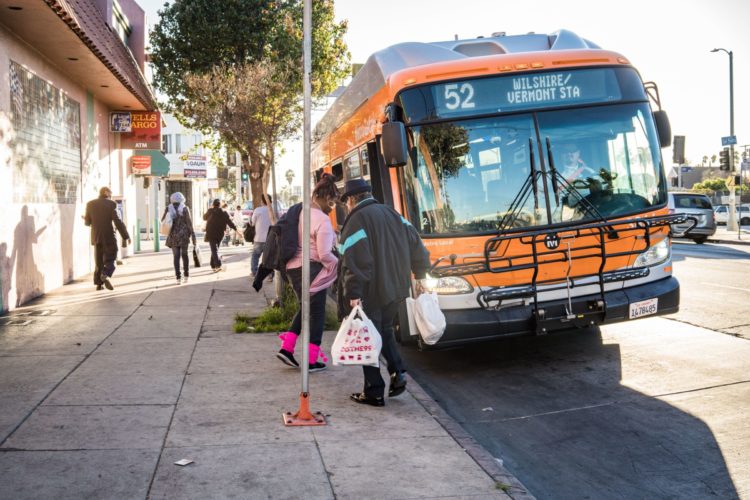
Service cuts enacted during emergency conditions early in the pandemic meant essential workers had to put up with long waits and less predictable trips, and for a while Metro did not have a concrete plan to fully restore service hours. Then in January 2021, Metro announced it had collected more sales tax revenue than forecasted. Seizing an opportunity, advocacy groups in LA gathered rider testimony, and won a commitment from the Metro Board to not only restore service, but to accelerate the timetable and bring service back quicker. This win is a testament to years of organizing for better bus service in the region, which led to quick mobilization at the right moment.
The “Think Globally, Act Locally” Award
TransitCenter presents this Frequency to Eli Lipmen, director of development and programming at Move LA. Eli has been a key voice combining insight and action at the local, state, and federal level. Throughout the pandemic, transit agencies across the country have confronted uncertainty about their financial futures. Federal funding bills and interventions at the local level kept transit agencies going through this difficult period — fiscal support that wouldn’t have happened without the power of advocacy. This award recognizes Eli for his organizing work on the Transit Justice National Campaign and in local campaigns to ensure that public transit continues to serve riders throughout California.
Best Transit Street Upgrades
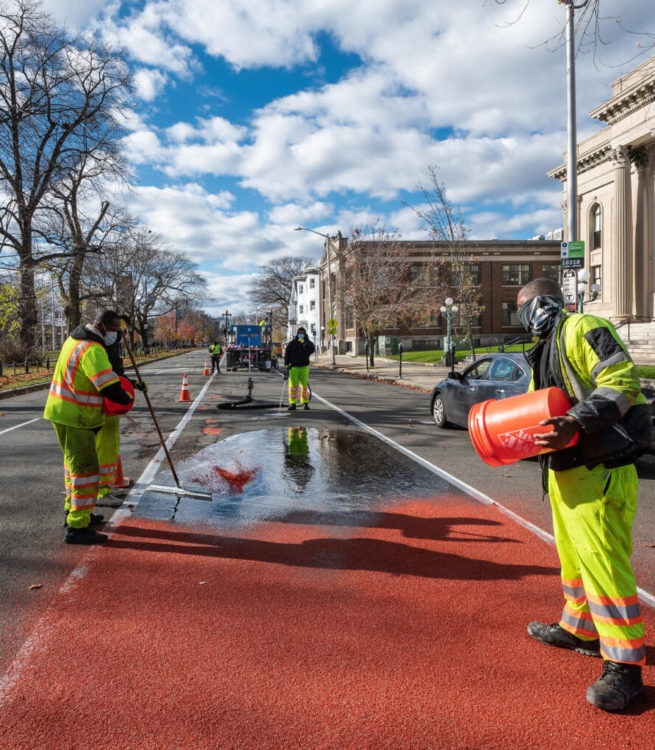 For its Rapid Response Bus Lanes Program, the Massachusetts Bay Transportation Authority collaborated with transportation and public works staff in six cities — Boston, Malden, Lynn, Revere, Somerville, and Brookline — as well as Massachusetts DOT to quickly add red paint and diverters to key corridors where thousands of bus riders were being delayed by car traffic.
For its Rapid Response Bus Lanes Program, the Massachusetts Bay Transportation Authority collaborated with transportation and public works staff in six cities — Boston, Malden, Lynn, Revere, Somerville, and Brookline — as well as Massachusetts DOT to quickly add red paint and diverters to key corridors where thousands of bus riders were being delayed by car traffic.
The MBTA and its partners have implemented bus priority on 10 corridors, including the first bidirectional, center-running bus lanes in New England on Columbus Avenue, engineered by the Boston Transportation Department.
To speed bus trips, transit agencies and city governments have to work together. We commend these agencies in the Boston region for modeling effective partnerships.
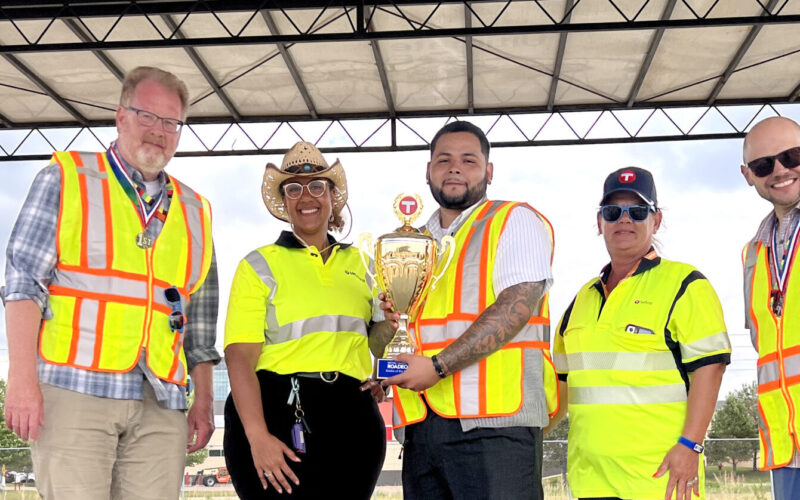 New TransitCenter Report: To Solve Workforce Challenges Once and For All, Transit Agencies Must Put People First
New TransitCenter Report: To Solve Workforce Challenges Once and For All, Transit Agencies Must Put People First
TransitCenter’s new report, “People First” examines the current challenges facing public sector human resources that limit hiring and retention, and outlines potential solutions to rethink this critical agency function.
Read More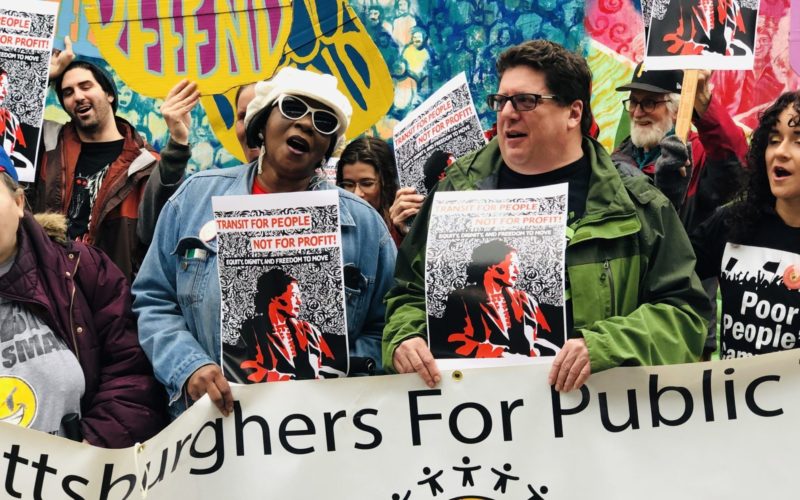 And the 2022 Frequency Award Winners Are….
And the 2022 Frequency Award Winners Are….
TransitCenter’s 4th Annual Frequency Awards continues our annual tradition of recognizing transit agency staff, DOT staff, advocates, and elected officials who worked tirelessly to improve transit in 2022.
Read More